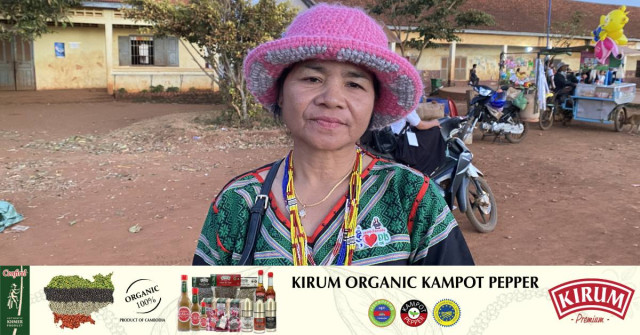Dance Teacher Fight to Preserve Bunong Tradition

- By Chhum Chantha
- February 2, 2024 6:10 PM
MONDULKIRI – Song Prou, a Bunong indigenous dance teacher, is determined to preserve the ethnic group’s identity and tradition as the community habitat has been in decline.
The loss of forest land for rotating plantation, natural resources, deforestation and encroachment, as Song Prou claimed, has led to the shrinking of Bunong identity in Mondulkiri.
Born in Pechreada district, Song Prou is a volunteer who teaches traditional dance to the next generation of Bunong people in villages in Mondulkiri province.
She recalled the prosperous times of the Bunong people who used to live in the mountainous areas and depended on non-timber forest products.
They are now threatened by deforestation and loss of wildlife as land is being encroached upon.
She said that at least intangible assets including arts, dances, traditions, customs and language connected to the people have not changed negatively.
“In the past, our ancestors described how they live with parents and siblings together, but now they have lost land and forest. I am sad,” she said.
“But at least we still have the traditional art and I will not give up on it. I will train the next generation.”
Song Prou, 58, is an important figure in the preservation of indigenous cultural traditions in this northeast area.
She has been a dance teacher for 16 years and has formed a dance troupe in Pichreda district.
She often goes to communities to teach children with the support of the Mondulkiri Provincial Department of Culture and Fine Arts and other organizations. Despite the job being unpaid, the 58-year-old aims to preserve her indigenous identity.
“I want to educate the next generation in the art of dance so that they do not forget the identity of the indigenous people, so I try to do it,” she said. “Speaking of dance lessons, it makes me happy and get to know a lot of people and go all over the city, even Phnom Penh.”
She said that the younger generation of Bunong are more interested in learning dance than those of five to 10 years ago because they are more aware of the identity and want to promote the tradition.















